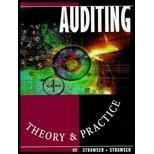Question
RISKS AND INTERNAL CONTROLS Following describes the credit sales procedures for clothing wholesaler that sells name-brand clothing to department stores and boutique dress shops. The
RISKS AND INTERNAL CONTROLS
Following describes the credit sales procedures for clothing wholesaler that sells name-brand clothing to department stores and boutique dress shops. The company sells to both one-time and recurring customers. A flowchart of the system is provided in the figure labeled Problem 5: Internal Control. Customer orders are received by fax and e-mail in the sales department. The sales clerk, who works on commission, approves the credit sale, calculates com- missions and discounts, and records the sale in the sales journal from the PC in the sales department. The clerk then prepares a sales order, a customer invoice, and a packing slip, which are sent to the accounting department for processing. The accounting clerk updates the AR subsidiary ledger and sends an invoice to the customer. The clerk then forwards the sales order and packing slip to the warehouse- shipping department. The warehouse-shipping clerk picks the items from inventory and sends them and the packing slip to the carrier for shipment to the customer. Finally, the clerk updates the inventory subsidiary ledger and files the sales order in the department. Cash receipts from customers go to the mail room, which has one supervisor overseeing 32 employees performing similar tasks: a clerk opens the envelope containing the customer check and remittance advice, inspects the check for complete- ness, reconciles it with the remittance advice, and sends the remittance advice and check to the accounting department. The accounting department clerk reviews the remittance advice and the checks, updates the AR subsidiary ledger, and records the cash receipt in the cash receipts journal. At the end of the day, the clerk updates the AR control, cash, and sales accounts in the general ledger to reflect the days sales and cash receipts.
Required
a. Describe the uncontrolled risks associated with this system as it is currently designed.
b. For each risk, describe the specific internal control weakness(s) in the system that causes or contributes to the risk
Step by Step Solution
There are 3 Steps involved in it
Step: 1

Get Instant Access to Expert-Tailored Solutions
See step-by-step solutions with expert insights and AI powered tools for academic success
Step: 2

Step: 3

Ace Your Homework with AI
Get the answers you need in no time with our AI-driven, step-by-step assistance
Get Started


